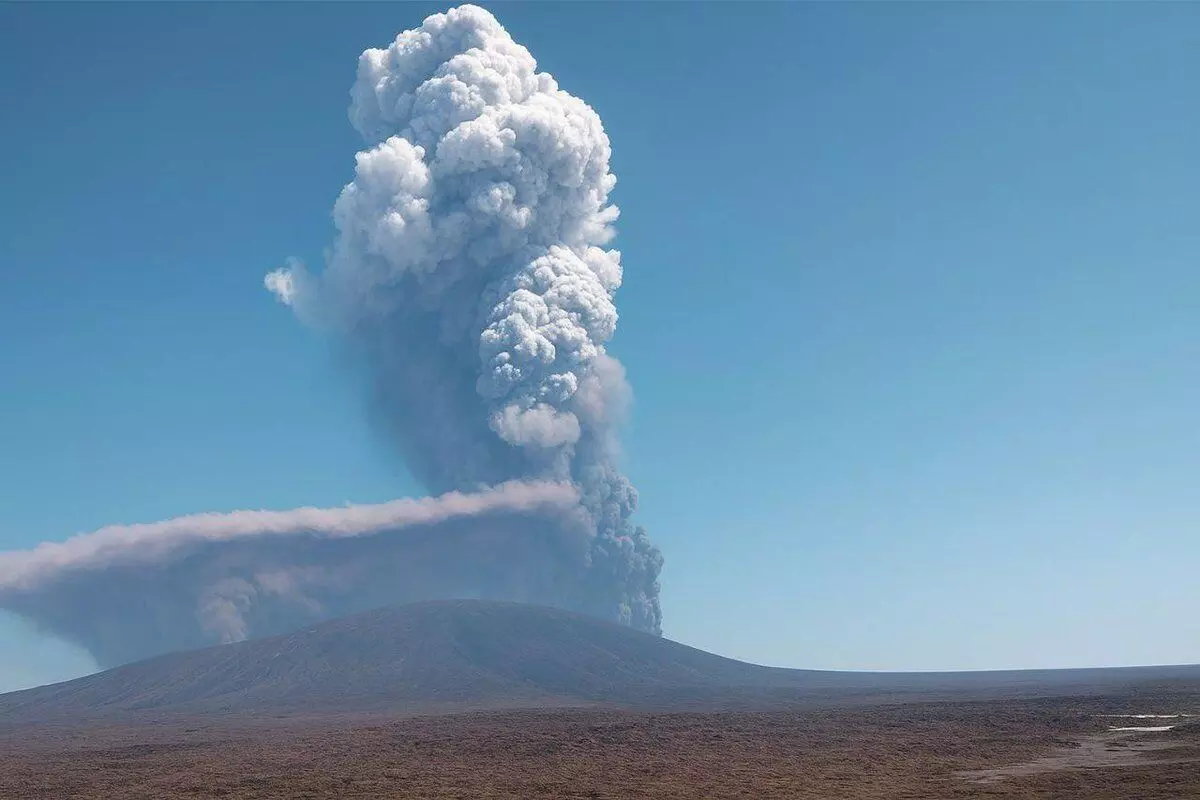Ethiopian volcano ash drifts over North India; flights cancelled, experts warn against inhalation risks
A cloud of ash from the volcanic eruption moved across large parts of northwest India on Monday night, sweeping over Rajasthan, Gujarat, Maharashtra, Delhi-NCR and Punjab
By - Sri Lakshmi Muttevi |
New Delhi: A day after Hayli Gubbi volcano in Ethiopia’s northeastern region erupted for the first time in 10,000 years, it has started impacting flights and air pollution in Delhi.
Environmentalists say the cloud of ash spreading will impact the current Delhi pollution, while IMD stated that the impact might be minimal.
A cloud of ash from the volcanic eruption moved across large parts of northwest India on Monday night, sweeping over Rajasthan, Gujarat, Maharashtra, Delhi-NCR and Punjab.
Impact likely to be minimal on Delhi air, says IMD
Speaking to NewsMeter, Prof K Purushottam Reddy, an environmentalist, said, “The air quality index in Delhi is hazardous. But a volcanic ash eruption is not in our hands. This ash spread in Delhi is in addition to the existing pollution. But we cannot blame the government, so people have to protect themselves by taking precautionary measures.”
According to IMD, the impact of the ash cloud on Delhi’s air quality is likely to be minimal because the ash is not mixing with surface-level pollution. Residents would mainly notice a hazier sky for a few hours.
According to IMD’s latest update, the ash will move towards China next and is expected to leave India by 14:00 GMT (7:30 pm local time) on Tuesday. “High-level winds carried the ash cloud from Ethiopia across the Red Sea to Yemen and Oman and further over the Arabian Sea towards western and northern India,” the IMD report said.
The International Volcanic Health Hazard Network (IVHHN) has said that exposure to volcanic ash can trigger breathing issues, eye discomfort, skin irritation and indirect problems like reduced visibility.
What is volcanic ash?
Volcanic ash is a cloud of tiny, abrasive particles released into the atmosphere during an eruption. It can damage aircraft engines, contaminate airfields and reduce visibility, making it hazardous to flight operations.
What are precautionary measures?
- Limit driving on roads.
- Stay indoors until conditions stabilise.
- Homes should be sealed by keeping doors and windows shut.
- People conducting clean-ups are urged to use proper dust masks.
- Those with asthma, chronic bronchitis, or emphysema should avoid exposure.
Flights cancelled
India’s Directorate General of Civil Aviation issued an advisory to flight operators asking pilots to immediately report any suspected ash encounter, including engine performance anomalies or cabin smoke or odour.
The advisory also directs carriers to inspect aircraft operating near affected zones, and ‘suspend or delay operations to impacted airports if conditions deteriorate.’
Air India cancelled at least 11 flights, both domestic and international, in view of the ash influence, mostly over North India. The airline has initiated precautionary checks on aircraft that had flown over regions affected by the volcanic eruption. Air India cancelled eleven flights after the eruption.
Akasa Air also cancelled all flights to and from Jeddah, Kuwait, and Abu Dhabi amid the ash influence. These flights were scheduled for November 24 and November 25.